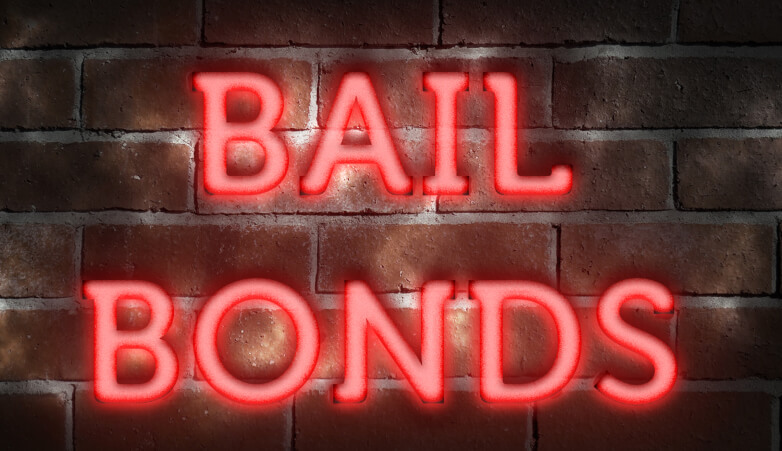
How to Post Bail in Colorado: 5 Things to Know
How is bail set in Colorado? The overriding concept, according to state laws, is that “the amount of bail shall not be oppressive.” In deciding whether the defendant should be released on personal recognizance or on secured bail, courts are instructed to consider the character and reputation of the defendant, as well as the scope of his family relationships. Judges also must consider the defendant’s prior criminal record and whether there is a history of failure to show up for court hearings. If a defendant has had a prior Class 1 misdemeanor in the past two years or any felony within the past five years, the district attorney’s office must agree with the decision to release the defendant on personal recognizance. The court can add conditions to the release of the defendant, such as a requirement to remain under home incarceration when not working and “any other reasonable restriction.” Here are five things to know if you need to post bail in Colorado.
1. Four Ways to Get Out of Jail
Own recognizance – Being released on OR is seen most often with misdemeanor offenses. It becomes less common once the crime is more serious. The court considers any past criminal record as well as the likelihood the defendant will show up for court appearances, before approving a release without having to post any security.
Cash bond – Either the defendant or any adult 18 or older can post a cash bond. The bond must equal the entire amount of the bail. Cash bail is seen most often with less serious misdemeanors, when it is not unusual for the defendant or an indemnitor to be able to afford the entire amount of a $500 or $1,000 bail in cash. Since the defendant pays the entire amount of the bail in cash, there is no additional charge, other than court fees and administrative charges.
Surety bond – While the focus of a surety bail arrangement is the bail bond agent, the defendant and the court, it is common for a guarantor to be involved as well. The guarantor can be a relative or friend who often will be asked to put up collateral to cover some or all of the 90 percent of the bail not paid by the defendant. For a $20,000 bail, the premium paid to the bail bond agent is 10 percent or $2,000. To cover the rest, the bail bond company will often hold jewelry or other property from the guarantor.
Property bond – Some courts in Colorado do not accept a property bond, in part, because the procedure is lengthy and fairly complicated. The value of any property, such as a home, land or stocks, must be determined. Also, equity in the property must exist that is at least 1 ½ times the value of the bail. Because of the paperwork involved, posting a property bond can take anywhere from 1 to 3 days.
2. How to Get Bail
Either the defendant or a friend or relative of the defendant can post bail. If a bail bond company is involved, basic information about the crime and the defendant is necessary and can be given to the agent either at the jail or on the phone. If a surety bond is used, the bail bond company may require collateral. Anyone who posts cash bail on behalf of a defendant agrees must pay the entire amount of the bail – not just the 10 percent premium. With a cash bond, thee defendant or whoever posted the bail gets the money returned as long as the defendant shows up for all court hearings – minus any administrative fees or court charges.
3. What Will Bail Cost?
Under Colorado law, bail bond companies can charge a 15 percent premium in addition to fees and administrative charges. The lowest charge for bail is $50 under Colorado law. Using a 15 percent premium and a $20,000 bond, the bail bond agent receives $3,000 that is not returned – that’s the cost of doing business with a bail bond company. It may be possible to find companies that charge lower premiums, particularly if there is a large bail involved or if the defendant has hired an attorney or is a member of the military. A cash bond does not involved a bail bond agent or a premium. The entire amount of the bail must be paid and all of the cash – minus fees and other charges – is returned to the defendant or a co-signor.
4. How Long Will I Stay in Jail?
Generally speaking, it’s possible to go through intake and processing in jail, contact a bail bond agent, and get released in two to four hours. Some factors can lead to longer waits, however. Posting bail at city or municipals jails is usually faster than county jails, which can take two to eight hours. Additionally, more serious charges require a bail hearing that may not be held until the next morning.
5. What if I Miss a Court Appearance?
If you posted a cash bail, the court will keep the entire amount. If you arranged for a surety bond, the bail bond agent will keep any collateral that may have been put up to guarantee the bail and seek the rest from you. As soon as you miss a court appearance, a bench warrant for your arrest will be issued on two charges – the original offense and failure to appear in court. The bail bond company may use a bounty hunter to search for you and bring you back to court.
This article is for informational purposes only. If you need legal advice, consult an attorney.
Related:
How Does a Bail Bond Company Make Money?
Top 10 Types of Bail Bond Collateral